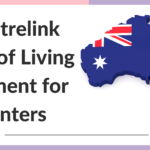The JobSeeker Payment is a vital financial support provided by the Australian government through Services Australia to help individuals who are either actively looking for work or temporarily unable to work due to illness or injury. This assistance can be a lifeline for many Australians navigating difficult employment situations. However, understanding how the system works, when you’ll receive your first payment, and the steps involved can be complex, particularly if you’re new to the process.
Australia JobSeeker Payment 2024
The JobSeeker Payment offers crucial financial assistance to individuals without jobs or temporarily unable to work due to health-related reasons. While the application process includes multiple stages and waiting periods, staying updated about these criteria can prevent any potential delays. Consistently reporting income, adhering to mutual obligations, and maintaining open communication with Services Australia are vital to ensuring uninterrupted financial support throughout your job hunt.
Key Details of JobSeeker Payment 2024
| Details | Description |
|---|---|
| Payment Timing | The usual timeframe for completion is around 2 weeks after approval, but there could be delays because of waiting periods. |
| Waiting Period | A standard 1-week waiting period, which may extend depending on financial circumstances. |
| Eligibility | Australians aged 22 to Age Pension age, meeting residency and income criteria. |
| Reporting | Fortnightly income reporting required to receive payments. |
| Mutual Obligation | Must comply with a Job Plan, including job search activities and meetings with employment services. |
| More Information | Visit the Services Australia website for full details on JobSeeker Payment. |
When You’ll Receive Your First JobSeeker Payment
Once your JobSeeker Payment claim is approved, you can expect your first payment within approximately two weeks. However, this may be delayed due to applicable waiting periods. Services Australia imposes a standard one-week waiting period after approval, but additional waiting periods may apply based on your financial situation, including liquid assets, redundancy payments, or recent seasonal work.
Waiting periods vary, and can range from one to thirteen weeks depending on your specific circumstances. It’s important to understand that these periods begin after your claim is approved, and the time taken to process your application does not count toward the waiting period. If you applied online through myGov, you can monitor the status of your claim and any waiting periods via your account.
Steps to Receive JobSeeker Payments
1. Eligibility Check
Before applying, ensure you meet the eligibility criteria. You must:
- Be between 22 years and Age Pension age.
- Be a resident of Australia, adhering to residency rules.
- Be actively seeking work or temporarily unable to work due to illness or injury.
- Pass the income and assets tests, ensuring your income or savings don’t exceed the limits set for JobSeeker eligibility.
2. Creating a myGov Account
To begin the process, you need to link Centrelink to your myGov account. If you don’t have a myGov account, you’ll need to create one, using identity documents like your passport or driver’s license. After linking your accounts, you can submit your JobSeeker Payment application through the Centrelink online portal.
3. Application and Approval
Once your application is submitted, Services Australia will review it, which may take up to 21 days. During this time, you might be asked to provide additional documents, such as proof of identity or previous employment. To speed up the process, ensure that all required information, including your CRN (Customer Reference Number) and identification documents, are provided when you apply.
4. Waiting Periods
Most applicants will face a standard one-week waiting period, but other waiting periods may apply based on your financial situation. These include:
- Liquid Assets Waiting Period: If you have liquid assets (e.g., savings, shares), you may need to wait between 1 to 13 weeks, depending on how much you or your partner have saved.
- Redundancy Payment: If you received a redundancy payment, you’ll face an additional waiting period.
- Seasonal Work: A separate waiting period may apply if you’ve recently completed seasonal or intermittent work, calculated based on your earnings and the duration of your employment.
These waiting periods are only applied after your claim is approved, and you can monitor them by logging into your myGov account.
5. Mutual Obligations
Once approved, you must agree to a Job Plan, outlining the steps you’ll take to find work. This includes:
- Attending meetings with employment service providers.
- Actively searching and applying for jobs.
- Participating in training or education programs to improve your skills.
Failure to meet these obligations may result in a suspension or delay of your JobSeeker Payment.
6. Reporting Income
Every two weeks, you must report any income you’ve earned, even if it’s zero income. This includes:
- Any wages you or your partner have received.
- Other forms of income that may affect your payment amount.
Accurate and timely income reporting ensures that you receive the correct JobSeeker Payment. If your financial situation changes, update your income details in myGov immediately to avoid overpayments, which could lead to a debt that you’ll need to repay.
Conclusion
The JobSeeker Payment is a critical support system for Australians facing unemployment or temporary work absences due to health issues. To ensure you receive this assistance smoothly, it’s important to understand the application process, comply with income reporting, and fulfill mutual obligation requirements. Staying informed and proactive will help you navigate the JobSeeker system efficiently, allowing you to focus on your job search while maintaining financial stability.
Click the link to know more

Ruth Alba is a dedicated writer with a passion for creating original, insightful content. With a focus on delivering plagiarism-free work, he brings clarity and creativity to each piece. His work reflects a commitment to integrity, originality, and engaging storytelling that resonates with readers.




